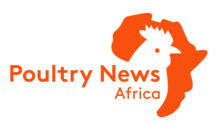The Gender Team at the FAO Regional Office for Africa contributed to the masterclass “Youth as Catalysts for Women’s Empowerment in Agrifood Systems,” part of the Agrifood Leadership Education Programme (ALEP). This initiative is driven by the World Food Forum’s Global Youth Action, spearheaded by FAO’s Office of Youth and Women (OYW), which places gender equality and women’s empowerment (GEWE) at the heart of its 2025 agenda.
The session aimed to equip youth leaders from WFF National Youth Chapters and ALEP cohorts with the knowledge and tools to translate gender-related policy goals into transformative local action. It emphasized the importance of youth-led and context-sensitive approaches to addressing persistent gender disparities in agrifood systems.
Representing the Africa region, Francesca Distefano, Gender and Policy Expert, and Ayouba Coulibaly, Gender Specialist, provided an overview on gender equality and women’s empowerment within the agrifood systems in Africa. Their presentation drew on regional data from the FAO Status of Women in Agrifood Systems Report (2023), and provided key lessons from the regional programme Empowering Women and Boosting Livelihoods through Agricultural Trade: Leveraging the AfCFTA (EWAT), which promotes the inclusion of young women in agrifood trade.
African women account for 54% of off-farm employment across agrifood systems. Ayouba further highlighted that farms managed by women are, on average, 24% less productive than those managed by men, even when comparing farms of similar size (SWAF, 2024). This productivity gap is largely attributed to women’s unequal access to and control over quality land and agricultural inputs, limited access to extension and climate information services, and greater time constraints.
The EWAT programme was introduced to address the structural inequalities through inclusive trade facilitation, financial access, conducive business policy environment and the inclusive roll out of the Africa Continental Free Trade Area (AfCFTA) agreement.
Francesca underscored that EWAT’s success lay in its context-driven approach. The programme used country-specific diagnostics to identify where exclusion was most severe and where opportunities for women and youth could be unlocked. This grounded design started with the voices of young women entrepreneurs and MSMEs owners, agripreneurs, women’s cooperatives, financial institutions, and trade ministries, which then led to targeted, context-relevant interventions.
One key lesson was the programme’s adaptability: when access to finance emerged as a major constraint during implementation, EWAT introduced a dedicated component in its second phase. This included tailored financial literacy training, mentorship opportunities, and dialogue platforms with banks, demonstrating the importance of responding dynamically to real needs on the ground. “Programme design is important, but programme responsiveness is essential,” said Francesca.
The Africa regional presentation highlighted how youth-led action, when anchored in intersectional analysis and local knowledge, can be a powerful force for inclusive rural transformation. Since today’s decisions are tomorrow’s future, youth-led local action matters.
The masterclass also served as a preparatory milestone ahead of the 2026 International Year of the Woman Farmer. It reinforced the message that youth, especially young women, must not only be included in agrifood transformation but recognized as key drivers of change.
As Martina Borrello, gender equality and women’s empowerment specialist from OYW put it, “The tools and practices we discuss today must go beyond dialogue and reach local communities, translating into real, meaningful change on the ground.”



